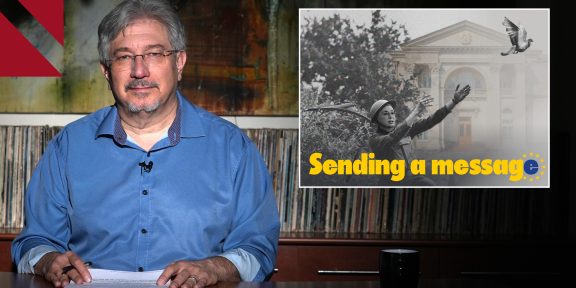By Mark Dovich
Armenian President Armen Sarkissian unexpectedly resigned Sunday evening, fueling widespread speculation on apparent disagreements between Sarkissian and Prime Minister Nikol Pashinyan over the Armenian government’s ongoing diplomatic negotiations with longtime foes Azerbaijan and Turkey.
In a statement announcing his resignation, Sarkissian cited constitutional limits on his office’s influence over Armenian affairs: “In the current challenging period for the state and the nation, the president does not have the necessary tools to influence the fundamental processes in domestic and foreign policy.”
In the statement, Sarkissian also urged “national unity” and said that “the institution of the president should not become an object for gossip and conspiracy theories, thereby diverting public attention from the most critical issues.”
On Monday, the prominent Armenian investigative outlet Hetq published an explosive story suggesting that Sarkissian’s real motivation to resign may have been his alleged possession of a foreign passport.
Sarkissian is not believed to be in Armenia at present. Earlier this month, he paid a working visit to the United Arab Emirates, where he met with representatives from Masdar, an Emirati state-owned renewable energy company that is building a solar power plant in Armenia.
Last Tuesday, his office released a terse press release saying that “after the working visit to the United Arab Emirates, President Armen Sarkissian went on a short vacation to undergo the necessary medical examination.”
His exact whereabouts are, as of this moment, unclear.
Sarkissian secretly held foreign citizenship, investigative journalists allege
According to Hetq, Sarkissian’s real motivation to resign may have been his alleged possession of a Saint Kitts and Nevis passport. Sarkissian may have acquired citizenship in the small island country by investing in a hotel, Hetq reported.
Saint Kitts and Nevis, a former British colony in the Caribbean, is one of several countries that run citizenship-by-investment programs.
Under the Saint Kitts and Nevis scheme, “foreigners who make a substantial contribution to the development of the country” — defined as at least several hundred thousand dollars of investment in real estate or “sustainable areas” — are eligible to receive citizenship.
A Saint Kitts and Nevis passport provides holders visa-free to all 26 European countries in the Schengen Area. In addition, Saint Kitts and Nevis citizens pay no personal income, inheritance, or wealth taxes, among other benefits. The country has a longstanding reputation as a global tax haven.
Under Armenian law, people holding foreign citizenship are barred from the presidency.
Commenting on Sarkissian’s decision to resign while overseas, the Hetq journalists suggested that “President Armen Sarkissian is unlikely to return to Armenia since he could be prosecuted for forging official documents.”
Sarkissian at one time also held a British passport, a fact that had already been made public knowledge several years ago. Sarkissian obtained British citizenship in 2002 and renounced it in 2011, according to the Armenpress state-run news agency.
Replacement candidate not yet picked, says Pashinyan
At a press conference Monday, Pashinyan said Sarkissian called to tell him about his decision to resign just hours before the news was made public.
“I asked the president of the republic if he was discussing the issue with me or he just informed me that he had made the decision,” Pashinyan said. “After that, he said he had made a decision.”
While Pashinyan said the ruling Civil Contract party has not yet selected a replacement candidate for Sarkissian, he stressed that “we must find solutions so that there is political harmony between the president, the government, and the parliamentary majority.”
Pashinyan also underscored his position that Armenia’s constitutional framework should not be touched at the moment, even though he acknowledged that his and Sarkissian’s positions on the matter “have differed significantly.”
Sarkissian and Pashinyan are reported to have clashed repeatedly over policy differences, particularly with regard to Pashinyan’s actions in the aftermath of Armenia’s disastrous defeat to Azerbaijan in and around Karabakh in 2020.
After signing a Russia-brokered ceasefire deal that many in Armenia came to see as a betrayal of the country’s national interests, Sarkissian joined calls for Pashinyan to resign. A few months later, Sarkissian notably refused to approve Pashinyan’s order to remove the chief of the staff of the armed forces from power.
What does Armenia’s president do?
Armenia’s president plays a largely ceremonial role. In a controversial 2015 referendum, Armenian voters approved changes to the country’s constitution that made Armenia a parliamentary republic, significantly weakening the president’s powers.
Sarkissian has mostly used the position to serve as one of Armenia’s most visible representatives overseas, participating in numerous diplomatic and business trips to countries across Asia, Europe, and the Middle East.
Sarkissian was appointed president in March 2018 after being nominated to the post by former leader Serzh Sargsyan — just weeks before the Velvet Revolution, led by Pashinyan, dislodged Sargsyan and the Republican Party from power.
Prior to becoming president, Sarkissian served for two decades as Armenia’s ambassador to the United Kingdom, in addition to a brief stint as prime minister in the 1990s.
What comes next?
According to the Armenian constitution, the National Assembly must hold a vote to elect a new president between 25 and 35 days after the president’s resignation. This rule means that Armenia’s one-chamber legislature will be expected to vote on a replacement for Sarkissian sometime in mid-to-late February.
A candidate must be nominated by at least one quarter of the National Assembly’s lawmakers and approved by three quarters of the body’s members to become president. If no candidate can overcome that threshold, further rounds of voting are held.
The ruling Civil Contract party currently controls 71 of the National Assembly’s 107 seats — a clear majority, but still short of the three-fourths control needed to select a new president. The opposition bloc, composed of lawmakers from the Armenia Alliance and the I Have Honor Alliance, holds the remaining 36 seats.
Under Armenian law, people working in certain official capacities are ineligible to become president, including judges, prosecutors, and members of law enforcement agencies. Presidential candidates must also be at least 40 years of age and have permanently resided in Armenia for at least the last six years, among several other requirements.
Until a new president is selected, the speaker of the parliament serves as acting president. The current speaker is Alen Simonyan, a close Pashinyan ally.
According to the Armenian constitution, the president may serve a single term of seven years.
















